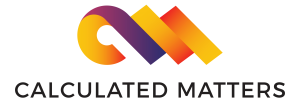The Tax Office Crack-Down you don’t want to mess with!
So what is the ATO up to?
The financial year is over, and you should be aware that this year the Australian Tax Office (ATO) are really cracking down on debt collection and penalties with new unprecedented powers.
I suppose if you were owed $19 billion bucks you’d be chasing it too.
It’s a confronting topic, no one wants to be in a position of owing money to the government.
So naturally, it’s important to make sure you are keeping on top of your taxes. And if you are a director of your business, not only do have your hands full with day to day responsibilities, you also need to be aware that you may be personally liable if something goes wrong. Whats more, if you are a director with an unpaid tax debt over $10K, be prepared to also have your personal credit rating effected.
What happens if you don’t pay your tax on time?
Not only do you risk your credit rating, but if you don’t complete your tax on time you are potentially exposing yourself to very expensive late lodgement fines.
A fine is a penalty so it’s not tax deductible and comes out of your hard earned income. In addition to that, any tax debt will continue to grow each day it goes unpaid due to the ATO charging interest on anything outstanding. Yikes.
After that, the debt collectors step in and try to reach an agreement. Sometimes the ATO takes stronger action and issues a Director Penalty Notice (DPN), garnishee notices or may even instruct the bank to freeze access to your funds.
There are two types of DPN, a 21-Day DPN or a Lockdown DPN. This can be confusing and the ATO only gives you a 21-day timeframe, so if you get one of these notices it’s best to check with us immediately to avoid any further trouble.
Essentially, all of this is telling us that the director is personally liable for the tax debts of the company. Even when a director resigns, they can still be liable.
How to avoid getting a Director Penalty Notice?
Stay on top of the company’s finances and lodge the BAS (business activity statement) within the 28 days after the end of the quarter. Be diligient with your PAYG and your SGC (Superannuation Guarantee Charge).
You can enter into a payment agreement with the ATO if your company has a tax debt. The good news is that the ATO will not issue a Director Penalty Notice while a payment arrangement is in place. You must remember though, that once you enter into a payment arrangement with the ATO, all future lodgements must be on time and paid in full.
There has never been a more important time to engage with the ATO to manage unpaid tax. It is no longer something you can ignore.
If any of this applies to you, call us immediately for some professional advice so that we can help you avoid any ATO issues.
And one last word of advice, ATO spammers are rife ! It is important to be vigilant. ⚠️ If you do happen to receive a call from someone purporting to be from the ATO, please check with us to verify before you do anything.




